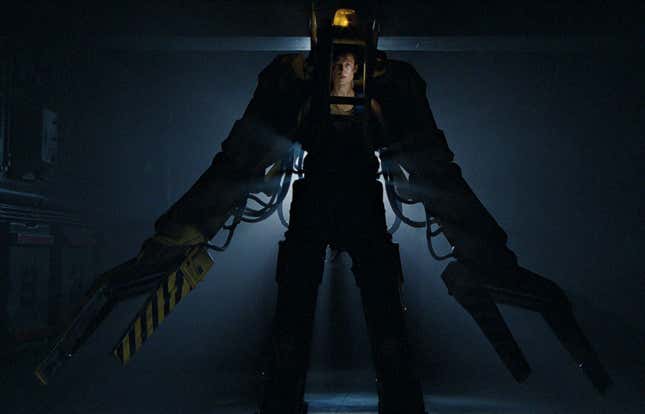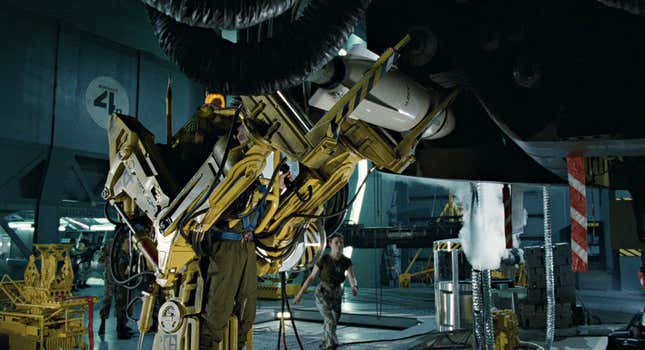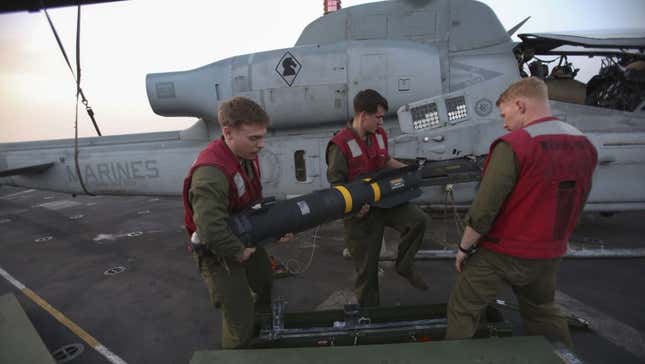
In the 1986 science fiction movie Aliens, heroine Ellen Ripley dons a powered exoskeleton suit to engage in hand to hand combat with the Xenomorph Queen alien. Now, thanks to modern technology, the U.S. Marines may soon do the same. Sort of. And minus the Xenomorph. (Hopefully.)
The Corps is testing a suit that, like the exoskeleton in the movie, could allow a single Marine to carry heavy loads for hours at a time. It’s a rare example of war imitating art.
In the movie, Ripley is a licensed operator of a Caterpillar P-5000 Powered Work Loader. The bright yellow P-5000 features a cockpit, hydraulically powered arms, and—proving OSHA is still a thing in the 22nd century—an irritating orange flashing safety light.
A powered exoskeleton has always seemed like something that’s technologically just around the corner. Now, 33 years later, it could actually be here.

According to Military.com, Utah-based Sarcos Robotics showed off its Guardian XO exoskeleton at the 2019 Modern Day Marine Exposition at Quantico, Virginia. The Guardian XO is designed to exactly the job of the Power Loader in the movie—and yes, it comes in bright yellow. The U.S. Air Force and U.S. Special Operations Command are already testing Guardian XO in the field.
Described as a “full body autonomous exoskeleton suit”, the Guardian XO is worn by the user, amplifying his or her actions to lift heavy objects. The suit can lift up to 200 pounds, though the wearer feels “very little” of that weight. The suit can run for up to eight hours on a single charge.
The 21st century suit is actually smaller and more compact than the 22nd century suit, and is not equipped with an irritating flashing safety light.

Sarcos envisions Marines using the Guardian to move heavy equipment, allowing one Marine to work alone on jobs that currently require three or four Marines. Using a powered exoskeleton also reduces heavy muscular strain, resulting in fewer injuries. The Marines could use an exoskeleton to move supplies and even arm aircraft, with a single Marine carrying a Hellfire anti-tank missile instead of the two or three it usually takes. That actually mimics the Power Work Loader 5000, which in the film loads a missile into a dropship.

Some form of military powered exoskeleton is inevitable: as the U.S. prepares for great power conflict across great distances, it becomes increasingly expensive to deploy and then support troops across those distances. If a powered suit can do the work of four soldiers that reduces strain on a very long logistical chain.
That having been said, exoskeletons are undoubtedly expensive. This might be offset to an extent by inevitable civilian applications. An exoskeleton like the Guardian XO could be used in the construction industry, shipping and receiving business, and even emergency services. The age of the Powered Work Loader is upon us, just three decades after James Cameron predicted it.
Let’s just hope the Area 51 raid didn’t end up unleashing any aliens.